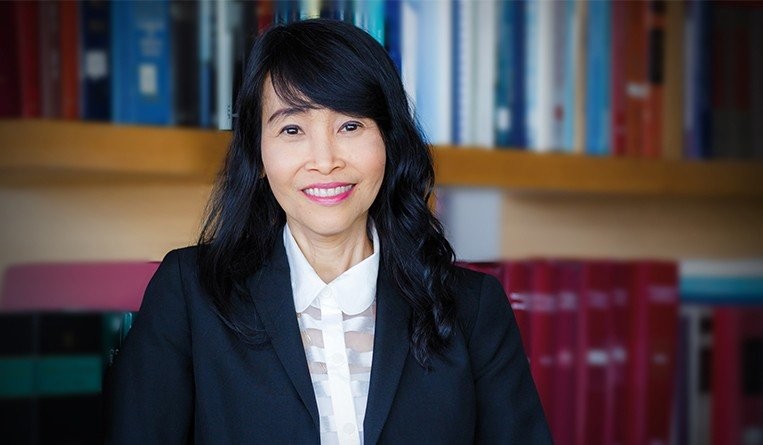Darani Vachanavuttivong: Taking on a different challenge and finding it fun
31 March 2020

Vachanavuttivong, co-managing partner and managing director of IP at Tilleke & Gibbins in Bangkok, is one the region’s top IP lawyers
By Espie Angelica A. de Leon.
Though many law practices in Thailand are dominated by men, intellectual property isn’t.
Thus, from the ranks of Thailand’s female IP legal eagles rose Darani Vachanavuttivong, co-managing partner and managing director of IP at Tilleke & Gibbins in Bangkok.
“Within our firm’s Bangkok office, more than two-thirds of our IP attorneys are women. In fact, one great characteristic of Thailand – and some other countries in Southeast Asia – is that professional women can often find opportunities to succeed in the workplace and grow into leadership roles. For example, I am one of two managing partners at Tilleke & Gibbins, and the other managing partner is also a woman,” she says. “The really important thing is just a willingness to work hard.”
Vachanavuttivong is not just a key figure in Tilleke’s Bangkok office. She is also considered a leading IP lawyer within the Asia Pacific region and is one of the most accomplished women practitioners in the world.
.jpg)
Among other accomplishments, she was president of the Intellectual Property Association of Thailand for two terms, the ASEAN Intellectual Property Association (AIPA) country head for Thailand from 2009-2019 and council member from 2007-2019, president of the Thailand group of the Asian Patent Attorneys Association (APAA) from 2012-2015 and a member of the International Trademark Association (INTA) Harmonization of Trademark Law and Practice Committee from 2016-2017.
Gender has not slowed Vachanavuttivong’s rise in her profession. In fact, she observes that more women are now getting into IP law, and that she expects the number to continue increasing.
Rather than gender, the challenge for IP lawyers lies in the legal environment of each jurisdiction.
“For instance, in Vietnam there tends to be more frequent changes in the law. In Myanmar, there is a lot of new legislative activity in progress, which can be challenging to stay on top of, but also a great opportunity because everyone is on the same footing as they observe the pending developments,” she explains.
Aside from Thailand, Vietnam and Myanmar, Vachanavuttivong also handles IP protection in Cambodia and Laos, which are also tough jurisdictions.
The support she gets from her family allows her to give the necessary time and energy for her job, she says. This helps her to overcome these challenges and keep going.
Plus of course she works hard and is always willing to learn.
.jpg)
It was this hunger for learning that was her springboard to a career in law. As a university student, she studied accounting and auditing. After graduation, she was hired by Tilleke & Gibbins, and that was when she discovered the excitement of legal work.
“I found the law fascinating and was especially interested in learning about how laws affect the building of brands and the enforcement of their IP rights. I became experienced in advising companies on choosing or creating a brand. Over the years I have been here at Tilleke & Gibbins, it has been very gratifying to see the growth of some clients I have worked with – such as a small local enterprise growing into a large company with an international presence. Another part of this work that I enjoy is being able to learn from clients and their different situations. Working with them to solve problems or figure out how to achieve a business goal is something that I genuinely find to be a lot of fun,” she says.
This is what she wants to tell any female law student still deciding on her practice: IP law is not at all boring.
She would tell the student: “IP law is varied – and fun, too, because you get to partner with companies across all different sectors. Also, I think the IP world is especially strong in building connections among practitioners, such as opportunities to meet and share knowledge.”
With this advice coming from one of the world’s foremost IP legal experts, law students will surely listen, no matter their gender.






